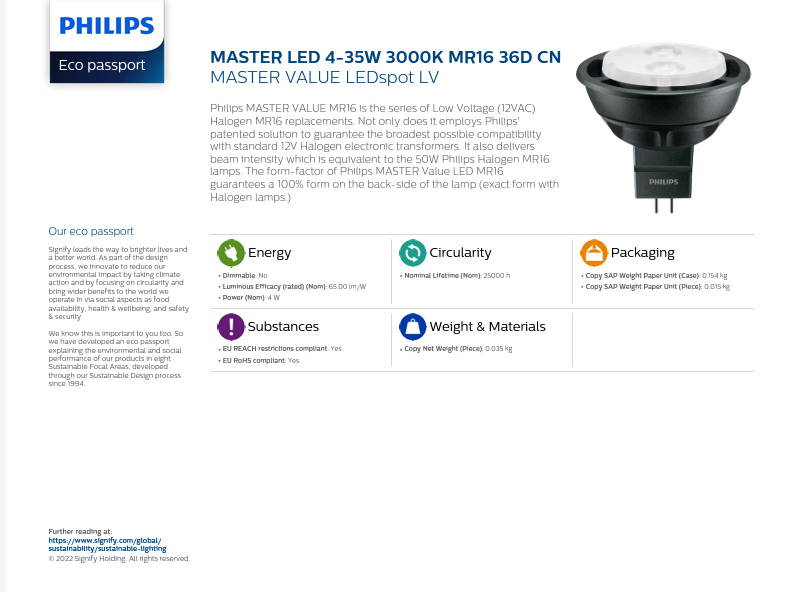
2 November 2023
The Impact of DPPs: From Eco-Conscious Shoppers to Sustainable Brands
Digital Product Passports (DPPs) are a powerful force in a world focused on the environment, traceability and sustainability. These digital documents hold a wealth of information about a product, from its inception to its ecological footprint.
The EU Digital Passport Regulation, excluding only a few sectors like food, feed, and medicinal products, not only bans the destruction of unsold consumer goods but also mandates green public procurement in line with circular economy principles.
Furthermore, it introduces new responsibilities and rights for a wide range of stakeholders: manufacturers, importers and distributors, dealers, repairers, remanufacturers, recyclers, maintenance professionals, customers, end-users, consumers, national authorities, public interest organizations, the EU Commission, or any organization acting on their behalf.
Our blog post discusses how DPPs are changing our perspective and interaction with purchases. This includes both eco-friendly shoppers and sustainable brands. From a business and consumer perspective.
What is a Digital Product Passport (DPP) ?
A Digital Product Passport, or DPP, is a document that contains important information about a product. It includes details about the product’s history, traceability, features, and environmental impact.
It acts as a product’s live digital ID, similar to how a regular passport identifies a person. The DPP intends to change our perspective, evaluation, and interaction with the things we buy. It makes a product more transparent and accountable throughout its entire lifecycle, from production to disposal.
Why is the DPP important ?
In the context of today’s global challenges, we cannot overstate the importance of the DPP. The DPP offers hope as we address issues from excessive buying, scarce resources, and the growing need for sustainability. It not only empowers consumers to make informed and environmentally conscious choices but also motivates manufacturers to adopt more sustainable practices.
Significance of the DPP in the context of circular economy
The DPP is closely associated with the principles of the circular economy. By facilitating the tracking and tracing of products throughout the life cycles.
It highly promotes the recycling, refurbishing, and the reuse of products. In the end, this helps reduce garbage and lessen harm to the environment. The DPP promotes a change from a linear model of production and consumption to a more sustainable circular approach.
Consumer Perspective
As mentioned before the DPP offers benefits from a consumer perspective, marking the start of a new era where people make smart and eco-friendly buying decisions. This section delves into how the DPP empowers consumers and the advantages it brings to individuals and society as a whole. In the following section we will delve into how the DPP empowers consumers and the advantages it brings to individuals and society as a whole.
How can the DPP benefit consumers?
The DPP can benefits consumers in several ways:
Transparency and Trust
When consumers gain access to comprehensive product information, including details about the product’s lifecycle, materials used, and its environmental impact. This transparency builds trust between consumers and manufacturers, as they can be confident about the authenticity of the provided data.
Informed Decision-Making
Armed with detailed product information, consumers can make more informed purchasing decisions. They have the ability to choose products that align with their values. Whether that’s sustainability, ethical sourcing, or durability. This, in turn, reduces the likelihood of post-purchase regret.
Reduced Environmental Impact
Informed consumers are more likely to select products that have a lower environmental footprint. They can support products that are designed for reuse, recycling, or responsible disposal. Contributing to the overall reduction of waste and resource consumption.
Product Safety
Consumers can quickly find out about product safety, like recalls and possible health risks, making them more aware of their safety.
Promoting Sustainable Brands
When consumers prefer products that are clear about their sustainability. It motivates manufacturers to use eco-friendly methods and create greener products, promoting environmental responsibility.
Business Perspective
In the following section, we’ll explore how Digital Product Passports (DPPs) support green claims and CSRD reporting, as well as the benefits they offer to businesses.
How DPPs can be used to support Green Claims and CSRD reporting
Digital Product Passports (DPPs) can be used to support green claims and CSRD reporting in a number of ways.
Green Claims
Green claims are statements or representations about the environmental or social benefits of a product or service. They can be used to market products and services to consumers, but they must be accurate and not misleading.
Digital Product Passports (DPPs) help businesses substantiate their green claims by providing supporting evidence. For example, when a company asserts that its product is crafted from sustainable materials, a DPP can furnish information about the origin of these materials and their environmental impact. This transparency is achieved through validated data contributed by every link in the supply chain, minimizing the potential for the final link to misrepresent the environmental footprint of its products.
CSRD Reporting
The Corporate Sustainability Reporting Directive (CSRD) is a new EU regulation that will require large companies and all listed companies to report on their sustainability performance. The CSRD will require companies to report on a wide range of sustainability issues, including their environmental impact, social impact, and governance practices.
DPPs help businesses comply with CSRD by collecting and reporting on their products’ sustainability data, including carbon and water footprints, for an overview of their environmental impact.
How businesses can take advantage of offering DPPs for their product portfolio
Digital Product Platforms (DPPs) offer several benefits to businesses. They help improve sustainability by providing data on product environmental impact and recyclability. DPPs enhance transparency, allowing consumers to access information about a product’s social and environmental effects, fostering trust and attracting new customers.
Additionally, they increase efficiency by simplifying data collection and sharing, saving time and money. DPPs also reduce risk by identifying potential issues early, like harmful materials. Lastly, they aid decision-making by offering insights into product impacts, enabling more informed choices in design, development, and marketing.

Examples of companies that have adopted or tested DPPs or similar initiatives
- Philips, a Dutch multinational technology company, has been developing and testing a DPP for its lighting products. The DPP includes information about the product’s material composition, environmental performance, and recyclability. Philips is using the DPP to improve the sustainability of its products and to make it easier for customers to choose sustainable options.
- The German multinational automobile manufacturer is also developing DPPs for its vehicles. The BMW DPP includes information about the vehicle’s material composition, carbon footprint and recyclability. BMW plans to use those DPPS to improve the sustainability of its vehicles and ultimately help consumers make more informed purchasing decisions (click here for more information).
Reshaping Sustainability with Digital Product Passports: Pilario’s Solution for a Greener Future
In summary, Digital Product Passports (DPPs) are game-changers. From a consumer perspective, DPPs offer transparency, informed decision-making, reduced environmental impact, and product safety. Above all, they empower individuals to make responsible choices while promoting sustainable brands.
From a business standpoint, DPPs support green claims and compliance with the Corporate Sustainability Reporting Directive (CSRD). They enhance sustainability, transparency, efficiency, risk reduction, and informed decision-making for companies.
At Pilario, we recognize the value of DPPs in advancing sustainability reporting. Our SaaS solution empowers companies to navigate the evolving landscape of sustainability reporting, ensuring compliance and promoting eco-friendly practices. Join us in the journey towards a more sustainable future, feel free to get in touch with us to discuss the possibilities Pilario offers.